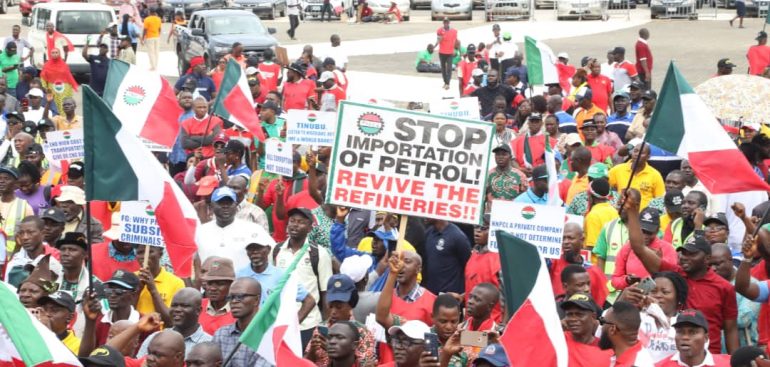The Nigerian crisis has been building up for months. Inflation and low wages, as well as the government’s announcement to suspend fuel subsidies, which would have a strong impact on the cost of living, are at the basis of this mobilisation.
Dissatisfaction among the Nigerian people had been growing for months. The Nigeria Labour Congress and the Trade Union Congress of Nigeria had initiated talks with the government demanding an increase in the minimum wage. The government promised to conclude these negotiations by the end of September but failed to deliver and the unions then called for a general strike which is still going on in the streets of different cities of the country.
Sharan Burrow, ITUC general secretary and spokesperson, explained that the wage set six years ago (30,000 naira, equivalent to 39.16 dollars), in the face of a cumulative inflation of 18% in 2023, is in no way equivalent to a living wage. “Nigerian workers and their families should not have to wait any longer for wage justice,” Burrow said.
Thousands of people have taken to the streets demanding a new wage deal but also demanding that the fuel subsidy, in place since the first day of this year and which has meant a more than 100% increase in the cost of petrol that is unsustainable for the daily economy of the vast majorities in Africa’s largest economy, not be removed.
In an attempt to calm things down, Nigeria’s president, Bola Tinubu, announced an increase for some public employees to 55,000 naira (71 dollars), but the demand of the workers and labourers is for 200,000 naira (258 dollars). The trade union confederations are not prepared to accept this and it is not clear how the price of fuel is being negotiated given that, in this oil economy, this item represents 80 percent of the national budget.
Mobilisation will continue, according to the latest information, and a resumption of talks is expected.










